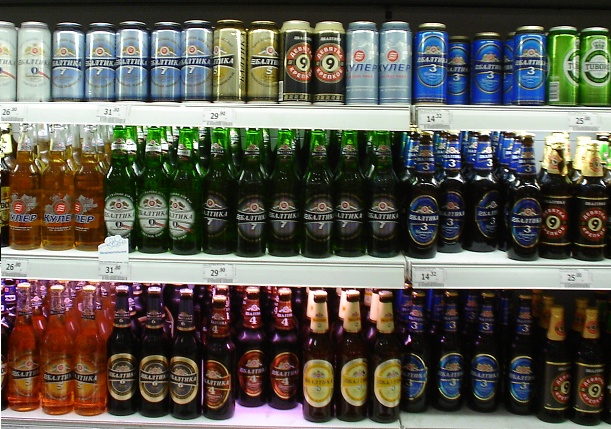A minimum per-unit price for alcohol, mooted by the UK government to combat problem drinking, was subsequently dropped in July 2013, despite evidence that such a strategy would effectively cut  consumption amongst heavier users of alcohol. But what is the evidence that approaches like this work?
consumption amongst heavier users of alcohol. But what is the evidence that approaches like this work?
According to a recent report in the British Medical Journal (BMJ), the stance taken by the UK government not to introduce a minimum price tag per unit suggests that ministers were "under the influence" of industry insiders, who lobbied against the introduction of such a levy.
However, the case for a 50 pence-per-unit tariff (up from the present 39p), looks compelling, as this commentary, by Southhampton hepatologist Nick Sherin, and Kate Eisenstein, policy adviser at the Royal College of Physicians, outlines:
"The mean weekly alcohol consumption of patients with alcoholic cirrhosis is around 15 bottles of white wine or 5 bottles of vodka, 20 litres of super strong lager, or 20 litres of strong white cider brewed from fructose syrup. As a result, irrespective of income, these very heavy drinkers opt for the cheapest possible alcohol--currently around 30 pence (EUR0.36; $0.49) per unit. The average low risk drinker already pays around £1/unit of alcohol and so the impact of minimum unit pricing on low risk drinkers is negligible, and on pubs it is zero. A minimum price of 50p per unit of alcohol would mean that a 700 ml bottle of vodka with a typical alcohol content of 40% would cost at least £14, making it difficult for the heaviest drinkers to maintain their alcohol consumption without substantially increasing their expenditure.
All purchase taxes are regressive; they affect deprived communities more severely. But the effect of alcohol related harm on deprived communities is savage--a threefold excess mortality between the most deprived and least deprived socioeconomic groups. Taxpayers are already paying for the harm that alcohol causes. According to the Organisation for Economic Cooperation and Development alcohol misuse currently costs the UK 2-3% of gross domestic product; this equates to around £12 a week for each of the 60 million or so UK inhabitants, of which £3 comes back from the drinks industry in taxes. Moderate drinkers and non-drinkers in the UK are effectively subsidising heavy drinkers to the tune of around £9 a week.
The fiscal alternative to minimum pricing is a general increase in alcohol duty, and it is precisely because minimum unit pricing is so highly targeted that it is so effective. In Canada, where they have had minimum unit pricing for years, a 10% increase in the minimum price resulted in a 32% decrease in directly attributable alcohol related mortality. In the Canadian province of Saskatchewan a 10% increase in minimum unit prices reduced consumption of beer by 10.1%, spirits by 5.9%, and wine by 4.6%..." (from Commentary: Minimum unit price--how the evidence stacks up, BMJ 2014;348:g6)
As the commentators highlight, the impact on the pockets of such a measure would be minimal for more discerning, moderate drinkers and pub-goers, who already pay a higher price than the proposed minimum.
They do not, however, dwell on what steps retailers might take to compensate for any loss of revenue incurred through sales reductions. Loading these costs onto higher-priced or more premium beverages could see more reserved drinkers paying more in the longer term.
But since it appears I'm already paying £9 towards the nation's heavy-drinking habits, what's a few quid more?









Comments
Add a comment